Spectrum are an Australian progressive rock band which formed in April 1969 and broke up in April 1973. The original line-up was Mark Kennedy on drums, Lee Neale on organ (ex-Nineteen87), Bill Putt on bass guitar, and Mike Rudd on guitar and lead vocals. In August 1970 Kennedy was replaced by Ray Arnott on drums. These members also performed under the alter ego, Indelible Murtceps, from 1971 to 1973. Spectrum had a number-one hit, "I'll Be Gone", on the Go-Set National Top 60 singles chart. After Spectrum and Indelible Murtceps disbanded, Putt and Rudd formed Ariel. In 1999 the pair formed Spectrum Plays the Blues, which later trimmed their name back to Spectrum. On 7 August 2013 Bill Putt died, after a heart attack.

Michael David Rudd is a New Zealand-born musician and composer who has been based in Australia since the late 1960s, and who was the leader of Australian progressive rock bands Spectrum and Ariel in the 1970s.

Ross Andrew Wilson is an Australian singer-songwriter, musician and producer. He is the co-founder and frontman of the long-standing rock groups Daddy Cool and Mondo Rock, as well as a number of other former bands, in addition to performing solo. He has produced records for bands such as Skyhooks and Jo Jo Zep & the Falcons, as well as for those of his own bands. He appeared as a judge on celebrity singing TV series It Takes Two from 2005. Wilson was individually inducted into the Australian Recording Industry Association (ARIA) Hall of Fame in 1989 and again as a member of Daddy Cool in 2006. Ross currently resides in the Melbourne suburb of Port Melbourne.

Paul Anthony Dempsey is an Australian musician. He is best known as the lead singer, guitarist and principal lyricist of rock group Something for Kate. Dempsey released his debut solo album, Everything Is True, on 20 August 2009, which peaked at No. 5 on the ARIA Albums Chart. He has also produced and co-written albums for other artists, including Mosman Alder.
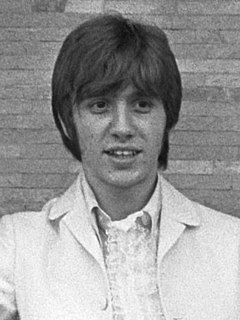
Stephen Carlton Wright, better known as Stevie Wright, was an English-born Australian musician and songwriter who has been called Australia's first international pop star. During 1964–69, he was lead singer of Sydney-based rock and roll band the Easybeats, widely regarded as the greatest Australian pop band of the 1960s.
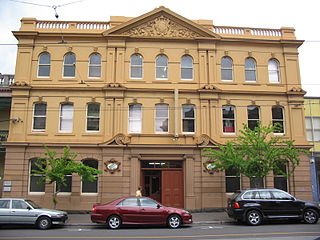
The T. F. Much Ballroom or Too Fucking Much Ballroom was a music and cultural institution in Melbourne from 1970 to 1974. The venue was promoted by Bani McSpedden and John Pinder, initially to raise money for a Carlton youth club. Its successors were Much More Ballroom and Stoned Again.

"Eagle Rock" is an Australian rock song, released by Daddy Cool in 1971 on the Sparmac record label. It went on to become the best-selling Australian single of the year, achieving gold status in eleven weeks, and remaining at No. 1 on the national charts for a (then) record ten weeks. "Eagle Rock" also spent 17 weeks at the No. 1 spot on the Melbourne Top 40 Singles Chart. The song was re-released by Wizard Records in 1982, and reached No. 17 on the Australian singles charts.

"Under the Milky Way" is a single by Australian alternative rock band The Church, released on 15 February 1988, and appears on their fifth studio album Starfish. The song was written by bass guitarist and lead vocalist Steve Kilbey and his then-girlfriend Karin Jansson of Curious (Yellow). It peaked at No. 22 on the Australian Kent Music Report Singles Chart, No. 24 on the United States Billboard Hot 100, No. 25 on the New Zealand Singles Chart and appeared in the Dutch Single Top 100. At the ARIA Music Awards of 1989, the song won 'Single of the Year'. It was issued simultaneously in both 7" vinyl and 12" vinyl formats by Arista Records (internationally) and Mushroom Records.
Ross Andrew Hannaford was an Australian musician, active in numerous local bands. He was often referred to by his nickname "Hanna". Widely regarded as one of the country's finest rock guitarists, he was best known for his long collaboration with singer-songwriter Ross Wilson, which began as teenagers, with The Pink Finks and forming the seminal early '70s Australian rock band Daddy Cool. Hannaford died of cancer after being diagnosed a year earlier.
Raymond "Big Daddy" Walter Arnott is an Australian rock drummer, singer-songwriter, he was a member of Spectrum (1970–1973), which had a number one hit with "I'll Be Gone" in January 1971. He also had short stints with The Dingoes in the 1970s and Cold Chisel in 1980s.
Cheetah were an Australian hard rock band, active between 1976 and 1984.
Daddy Cool is an Australian rock band formed in Melbourne, Victoria in 1970 with the original line-up of Wayne Duncan, Ross Hannaford, Ross Wilson and Gary Young. Their debut single "Eagle Rock" was released in May 1971 and stayed at number 1 on the Australian singles chart for ten weeks. Their debut July 1971 LP Daddy Who? Daddy Cool also reached number 1 and became the first Australian album to sell more than 100,000 copies. The group's name came from the 1957 song "Daddy Cool" by US rock group The Rays. Daddy Cool included their version of this song on Daddy Who? Daddy Cool.
Sons of the Vegetal Mother were an Australian "esoteric special-occasion progressive band", formed in late 1969, with a floating line-up based around the nucleus of Ross Wilson and Ross Hannaford. A side-project of the band, formed in 1970 was Daddy Cool, which played 1950s doo-wop music plus some originals. Daddy Cool were to eclipse their parent band when their debut single "Eagle Rock" reached No. 1 on the Australian National charts.
Mighty Kong were an Australian 'supergroup' successor to Daddy Cool, which broke up in August 1972. It was also the fifth in the line of groups that featured singer-songwriter Ross Wilson and guitarist Ross Hannaford, which began with Pink Finks in 1965. Despite its all-star line-up, drawing from three of the top groups of the time, the band was short-lived and never really achieved its considerable potential, effectively relegated to being a footnote in the story of Daddy Cool.
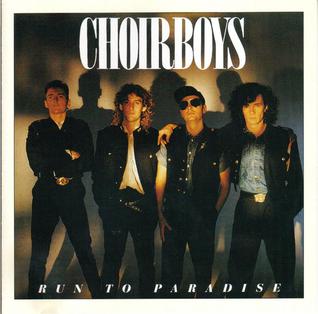
"Run to Paradise" is a single by Australian hard rock group The Choirboys which reached No. 3 on the Australian Kent Music Report Singles Chart in December 1987. The related Big Bad Noise album peaked at No. 5, and was the twenty-first highest-selling album of 1988 in Australia. In New Zealand, "Run to Paradise" attained No. 13 on the RIANZ Singles Chart. Released in the United States in 1989, it appeared on the Billboard Hot 100 and Mainstream Rock charts. The song was re-worked for a 2004 release credited to Nick Skitz vs. Choirboys and reached No. 16 on the ARIA Singles Chart.
Buster Brown was an Australian rock and roll band, which featured vocalist Angry Anderson and drummer Phil Rudd, that was formed in Melbourne in 1973. Their sound was hard rock mixed with blues rock influences. Their first album, Something to Say was produced by Lobby Loyde and released in 1974. Rudd left to join an early version of AC/DC while Anderson continued with new line-ups and eventually disbanded the group in November 1975. Anderson joined Rose Tattoo which later included former Buster Brown bandmates, Geordie Leach on bass guitar and Dallas "Digger" Royall on drums.
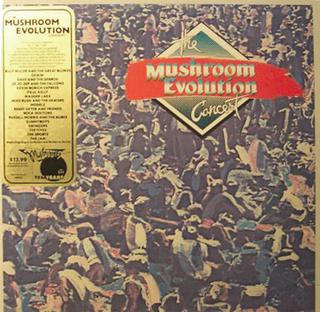
Mushroom Evolution Concert is a live album and video recorded by various Australian artists at celebratory performances held over two days of the Australia Day weekend 1982. The Mushroom Evolution Concert was staged for Mushroom Records' tenth anniversary at the Myer Music Bowl and was organised by label boss, Michael Gudinski. It included a wide range of Australian performers from the label's roster. An estimated audience of 100,000 attended the concerts. In late 1972 Gudinski had been an artist manager and concert promoter when he and business partner, Ray Evans, founded Mushroom Records. The concert was recorded both for audio as a triple-LP and for video on double-VHS and released in 1982 under the same name. Subsequently, these were re-released on 2× CD (2005) and on 3× DVD respectively. Although a prominent Mushroom Records artist from the 1972–1981 era, Skyhooks did not appear at the concert – they had disbanded in 1980.
Cam-Pact was an Australian soul and psychedelic pop band which formed in April 1967. Originally they performed as The Camp Act but soon changed to Cam-Pact. Although little known outside Melbourne at the time, the various lineups of the group featured a number of young Melbourne musicians who went on to become significant figures on the Australian music scene, including Ray Arnott, Keith Glass, Chris Löfvén, Russell Smith, Robert Lloyd, and Chris Stockley. Cam-Pact issued five singles and three extended plays on Festival Records before disbanding in March 1970.
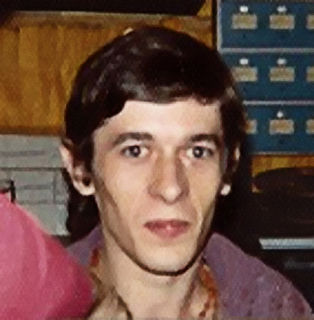
Mark Kennedy is an Australian musician who has been the drummer for several artists including Spectrum (1969–70), Doug Parkinson in Focus (1971), Leo de Castro (1971–73), Ayers Rock (1973–76), Marcia Hines (1976–83), Men at Work (1985), Renée Geyer and Jimmy Barnes (2005).
Wayne Ian Duncan was an Australian rock musician. In 1970 he was a founding member of the doo-wop band, Daddy Cool, providing bass guitar and backing vocals. They were inducted into the ARIA Hall of Fame in 2006. During his career he had also been a member of the Rondells, Sons of the Vegetal Mother, Gary Young's Hot Dog, Jane Clifton and the Go Go Boys, the Black Sorrows, and the Hornets. In late November 2016 Duncan had a stroke and died a week later, he was survived by his domestic partner, Anne, and by two children. According to Australian music journalist, Ian McFarlane, "Duncan was never a sedate bassist. One only has to listen to some of the latter-day DC material... to hear how inventive his playing could be."










